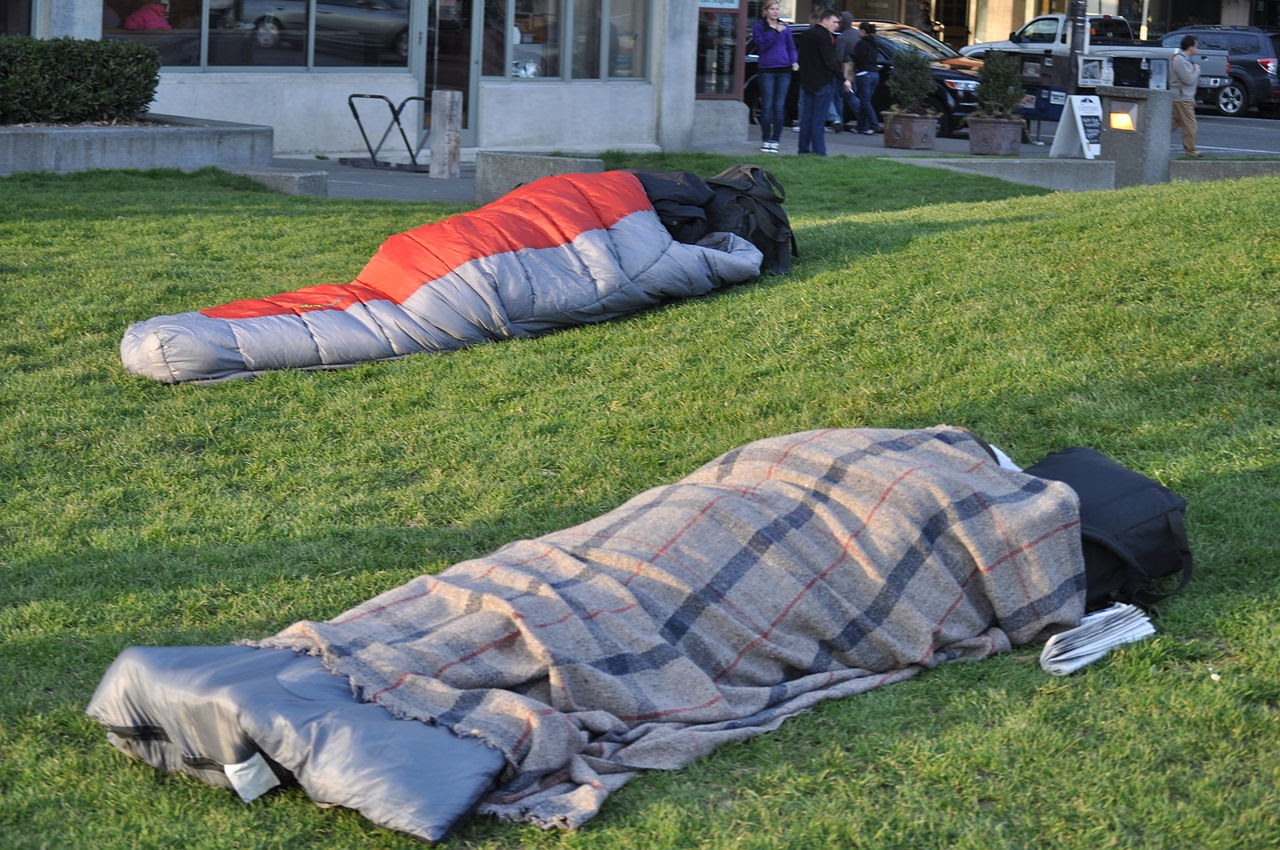As the year slowly draws to an end, the havoc that the pandemic has wrought on almost all aspects of life only becomes clearer. Yet few have suffered as much as those who are sleeping rough, as they struggle to endure the homelessness crisis which has significantly worsened throughout the Coronavirus pandemic.
It has been estimated that at least 90,063 people in the UK have been threatened with being made homeless since April this year, despite measures which attempted to keep people off the streets such as the ban on evictions and the ‘Everyone In’ scheme.
Whilst there is no national figure for homelessness in the UK, a report from Shelter in December 2019 stated that there were an estimated 320,000 homeless people within the UK. This number has only increased as a result of Covid-19.
According to homeless charities, lockdown measures have created a new population of rough sleepers, which include many young people who previously worked in the hospitality sector. These newly homeless people have not been sufficiently protected by the short-term crisis management afforded by the Government. Instead, they fall through the cracks due to sudden unemployment, limited possibility of state benefits, delays with universal credit, or having a health condition that prevents them from food shopping.
The closing of hospitality for the second time has not only threatened the job security of its workers again but has also closed down avenues for fundraising and support for homeless people. Streetsmart, an organisation which fundraises for homeless charities through ways such as adding a £1 donation on restaurant bills, is predicted to lose a significant amount of funding due to hospitality closures.
The second lockdown also means that there are fewer income opportunities for the homeless. A Leeds Big Issue seller recently provided some insight into the struggles caused by the Coronavirus pandemic, as sellers were removed from the streets for the first time in 25 years. Despite a brief return, lockdown has forced the sellers out of work again, impeding their ability to create an income.
In light of this, many homeless charities are calling for a second round of the ‘Everyone In’ scheme as we face another lockdown. Despite some of the pitfalls from the scheme earlier in the pandemic, one of its great successes included providing emergency accommodation in hotels and hostels for approximately 15,000 homeless people.
However, there is great concern over what will be done to protect the homeless as we trudge towards winter. The Housing Secretary announced a £15m emergency fund to help provide accommodation for the homeless who are particularly vulnerable to Covid-19. This is far from a panacea, with homeless charities suggesting that the provision is not as extensive as that provided earlier in the year.
Speaking to Lisa Roddy from Manchester City Council’s Homelessness Division, the situation in Manchester is dire. She suggests that homelessness has likely “at least doubled” thanks to both the pandemic and the housing crisis. Whilst some see merit in the ‘Everyone In’ scheme, others such as Lisa see it as a temporary success. Once funding ran out, people were put straight back on the street.
Similarly, Lisa sees very little promise in the £15m emergency fund, calling it a “piecemeal” which does nothing more than put a “plaster” on a “gaping wound”. She argues that the responsibility to help the homeless has been abandoned by the government and instead members of communities are expected to pick up the pieces.
And that they will – Manchester’s semi-professional football club ‘FC United’ help the homeless annually on Christmas Day. This year they plan to do a Christmas ‘Gift Drop’, allowing them to supply a similar degree of support to those in need with social distancing measures.
Ultimately, the disparity in attitude and provision with this second lockdown demonstrates a lack of consistency from the government and exposes the health inequalities within society. Homeless people are disproportionately more vulnerable to Covid-19, due to an inability to self-isolate and the less hygienic conditions that they are subject to. In light of the second lockdown, it is clear that much, much more needs to be done to support the homeless as they suffer through the pandemic from the streets.
Nina Mul
Image source: Wkimedia Commons

